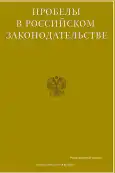Study of the Level of Physical Fitness of Employees Employed in the Internal Affairs Bodies
- Authors: Tkhagalegov A.A.1
-
Affiliations:
- Krasnodar University of the Ministry of Internal Affairs of Russia
- Issue: Vol 16, No 4 (2023)
- Pages: 130-134
- Section: Current problems of training and development of internal affairs staff in modern conditions
- URL: https://journals.eco-vector.com/2072-3164/article/view/568395
- ID: 568395
Cite item
Abstract
This article examines the issues of professional and applied physical training of police officers affecting physical fitness. Professionally applied physical training in itself means the use of physical culture and sports to prepare a person for a certain professional activity. However, it should be noted that professional fitness means selective use of physical culture and sports resources. This means that not every exercise, technique, etc. is able to provide a solution to the set professional tasks. For example, the means used by the police and special forces units or the military will differ significantly precisely because of the professional tasks that a particular person will have to perform. It is well known that the police service is associated with constant stress, which accumulates and affects both physical and mental health of a person, it is also associated with ensuring the safety of citizens of their country and the fight against crime. This means that in order to perform the service, it is necessary to undergo sufficiently serious training, otherwise the risk of non-fulfillment of tasks or a threat to the life and health of the employee increases.
It is concluded that the current situation can be characterized as movement on the spot without any progress, since students undergo a fairly extensive training course in a short time. Most of the knowledge and skills that have been acquired are forgotten and not used, properly undergoing training, in the future the situation repeats. In this regard, the task of the teaching staff is constant progress in the training of students, and for this it is necessary, first of all, to think about the transition to more effective education systems that will allow to include in training not only practical but also theoretical knowledge, formation of students' motivation not only to successfully master the discipline, but also to self-development, the use of an individual approach in the learning process in order to increase the effectiveness of the listener.
Full Text
About the authors
Azamat A. Tkhagalegov
Krasnodar University of the Ministry of Internal Affairs of Russia
Author for correspondence.
Email: kodzokov.aznaur@bk.ru
Police Senior Lieutenant, Lecturer of the Department of Physical Training, North Caucasian institute of professional development (branch)
Russian Federation, Nalchik, KBRReferences
- Afov A.H. The role of physical training and sports in the professional training of police officers / A.H. Afov // Education. The science. Scientific personnel. 2020. No. 1. pp. 126-128.
- Bauaev Sh.Kh. The role of professionally applied physical training in the official activities of police officers // Eurasian Legal Journal. 2022. No. 9(172). pp. 456-457.
- Galkin V.N. Professionally applied physical training of employees of internal affairs bodies: problems and prospects of development // In the collection: Physical training of employees of the internal affairs bodies of the Russian Federation. Collection of scientific articles of the All-Russian competition. Editorial board: R.V. Kamnev, O.S. Panova, D.G. Ovechkin [and others]. Volgograd. 2022. pp. 24-26.
- Dadov A.V. Fundamentals of professionally applied physical training of students of educational organizations of the Ministry of Internal Affairs of Russia // Education. The science. Scientific personnel. 2019. No. 2. pp. 182-184.
- Kanukoev A.M. Professionally applied physical training of police officers: organizational and methodological aspect // Physical culture and health. 2022. No. 1 (81). pp. 16-19.
- Sidorova M.M. Professionally applied physical training of police officers undergoing initial professional training // In the book: Crime in the CIS: problems of crime prevention and disclosure. Collection of materials of the international scientific and practical conference. 2020. pp. 311-313.
- Tkhagalegov A.A. Professional training of employees of internal affairs bodies for complex forceful actions in operational and service situations // Gaps in Russian legislation. 2022. Vol. 15. No. 4. pp. 105-109.
- Khazhirokov V.A. Specific characteristics of professionally applied physical training of employees of internal affairs bodies // Education. The science. Scientific personnel. 2019. No. 2. pp. 220-222.
- Khazhirokov V.A. Specific features of professionally applied physical training in educational organizations of the Ministry of Internal Affairs of Russia // In the collection: Physical education and sport: topical issues of theory and practice. Collection of articles of the All-Russian Scientific and Practical Conference. Responsible editors V.M. Barshay, A.A. Tashiyan. 2019. pp. 138-143.
- Yaroslavsky M.A. Actual issues of professional and applied physical training of police officers / M.A. Yaroslavsky // In the collection: Socio-economic, historical and legal, philosophical concepts of modernity. Materials of the XIX All-Russian Scientific and Practical Conference. Stavropol. 2022. pp. 200-203.
Supplementary files











